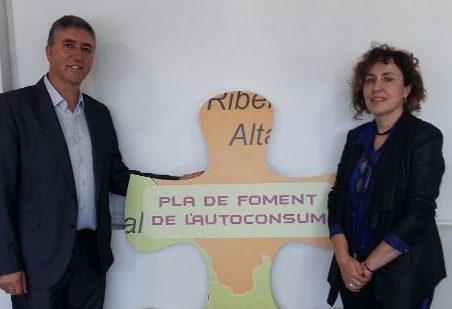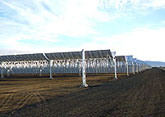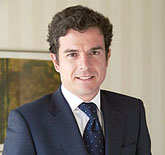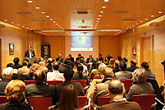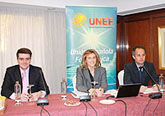The global energy system of 2050 will have to consider fusion as yet another element. This is the conclusion of several of the researchers who participated in the Fusion Energy Conference FEC 2016 that took place in Kyoto, Japan, in late October. The event aimed to provide a forum for experts to discuss the new challenges posed by the possible technological feasibility of this type of energy already in use as well as to establish priorities for research routes of the next years.
FEC 2016 organized by the International Atomic Energy Agency (IAEA) had the attendance of the International Thermonuclear Experimental Reactor (ITER) and the European Atomic Energy Community (Euratom).
From Spain, several researchers from CIEMAT attended. Among them were Dr. Helena Cabal and Yolanda Lechón, who, along with other researchers, participated in the poster «Exploring the penetration of fusion technologies in different global energy scenarios using the EFDA Times energy optimization model». The model considers the year 2050 as the horizon in which the fusion plants will be commercially possible. «The global energy system of that moment will have to consider fusion as yet another element,» says CIEMAT on its website, where it posts a note about the event.
The model used in this prospect, the EFDA Times (EFDA: European Fusion Development Agreement) is a global energy optimization model that aims to analyze the implementation and development of fusion technologies in the Framework of the future global energy system.
Fusion for more ambitious environmental objectives
Among the main results obtained after its application, CIEMAT emphasizes that a key factor for the participation of fusion technologies in the global energy system is the final cost of the technology and that the most favorable scenario for this energy to enter into the global electricity market is the one that matches the most ambitious environmental objectives.
The society differentiates fusion energy from traditional nuclear energy by associating fusion with a safe, clean and unlimited source of energy, according to another poster presented by Dr. Ana Prades and Dr. Christian Oltra along with other researchers on the meaning of Social research on fusion and the degree of social acceptance of the different energy technologies.
In it, a very interesting conclusion was exposed: there is a possible point of friction in the competitive relationship that could be established in society in considering that the funds devoted to the fusion are withdrawn from those that would go towards research in renewable energies, thus calling into question its role.
Carlos Sánchez Criado
Publicista por la Universidad Complutense. Director comercial de publicaciones técnicas del sector de la energía durante doce años. Director de Energy News Events, S.L. desde 2012 difundiendo información en Energynews.es, movilidadelectrica.com e hidrogeno-verde.es. Y por supuesto, organizando eventos como VEM, la Feria del Vehículo Eléctrico de Madrid.










